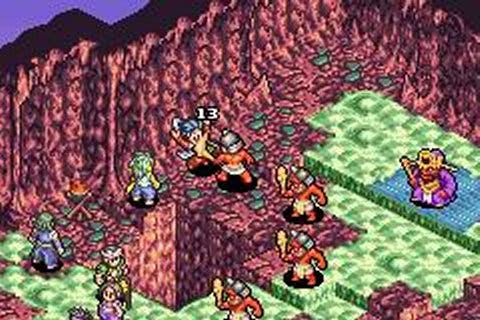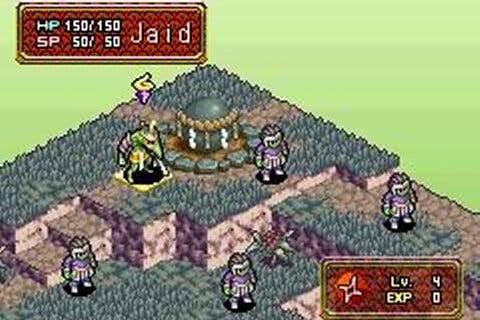Onimusha Tactics
Onimusha as a turn-based strategy game?
It's strange how a single popular game can shift an entire genre from 'stuffy and outdated' to 'firm favourite'. Who would have predicted a couple of years ago that in 2003, we'd be salivating over turn-based strategy games - a genre at which the majority of the gaming world has always turned its nose up? In the end, though, all it took was one game to mark a turning point - and once the world was hooked on Advance Wars, the floodgates of turn-based strategy titles were sure to open.
Turn Me Around

In general, what we've received has been very, very good indeed. From Advance Wars' own sequel to the sublime Final Fantasy Tactics Advance, to gems such as Fire Emblem and Tactics Ogre which are sadly unavailable in Europe as yet, turn-based strategy is a genre that has borne rich fruit on the Game Boy Advance - and the harvest is certainly not over yet, with several more titles on their way, some entirely new and some based on existing franchises (turn based or otherwise).
Onimusha Tactics is a somewhat odd addition to the genre, since it's based on an entirely different type of games - the samurai demon slasher Onimusha series being effectively Resident Evil with a very big sword and a bad temper. The last time we saw this attempted was when Konami translated Zone of the Enders into a GBA turn-based strategy, The Fist of Mars - which was a very decent stab at the genre, if excessively plot-heavy, but probably remains the weakest GBA turn-based strategy to date, which doesn't bode particularly well.
Onimusha takes its style directly from Final Fantasy Tactics Advance, and makes no bones about it. In fact, much of the game is almost identical to FFT, from the isometric landscapes and the super-deformed characters on the battlefield to minor things like the way that you choose a team from your characters to place on starting squares in each battle, or the way some non-playable characters will team up with you for battles and act under friendly AI control. In other respects, however, Onimusha Tactics marks a significant departure from the FFTA formula - in ways which are both welcome, and unwelcome.
Samurai Showdown

One of the more welcome changes in the game is the significant beefing up of the plot elements, with each battle in the game strongly driven by the story (a conventional enough samurai tale which sees a young man descended from a legendary clan taking on an evil race of demons who threaten to engulf Japan under the leadership of a demonic general, Nobunga Oda - who is actually a real historical figure, although we don't think he was really a demon). Dialogue interrupts the proceedings on a fairly regular basis, but not in an annoying way, and the story and characters are certainly interesting enough to lead you by the nose through the game - a nice change from FFTA, which could occasionally feel slightly pointless due to the extremely weak plot and mostly non-linear progress.
Unfortunately, while the plot has been beefed up, much of the rest of the game has been watered down, and Onimusha Tactics lacks a great many of the depths and subtleties which made FFTA into such a fantastic game. Simple things such as the ability to attack enemies from behind to score more damage are missing, but more keenly felt is the absence of FFTA's complex and intriguing job and skill system, which has been replaced with a rigidly fixed set of classes and slow, linear learning of skills. Other aspects of the game frustrate unnecessarily, such as the need to equip herbs and potions on the equipment screen before they can be used in battle, rather than simply using them directly from an inventory.
The dumbing down of the basic strategy systems in the game is really the key problem with Onimusha Tactics as compared to its more accomplished rival, and although the plot of the game will keep you entertained the whole way through it, it lacks both the basic longevity (being a very easy game, a criticism which has also been levelled at FFTA) and the massive replay value of FFTA. This is a terrible shame, because in most other respects the game is polished and well thought out, with decent graphics and gameplay that is solid and enjoyable despite its shallowness.
Tactical purchase suggestion
All in all, this is a good effort from Capcom, and if you've wrung every drop of enjoyment from FFTA and are eager for more turn-based goodness, this will certainly fill a gap nicely; but if you're looking for somewhere to start on turn-based strategy, there's no way this should join your collection before you've picked up Square Enix' significantly superior game.

